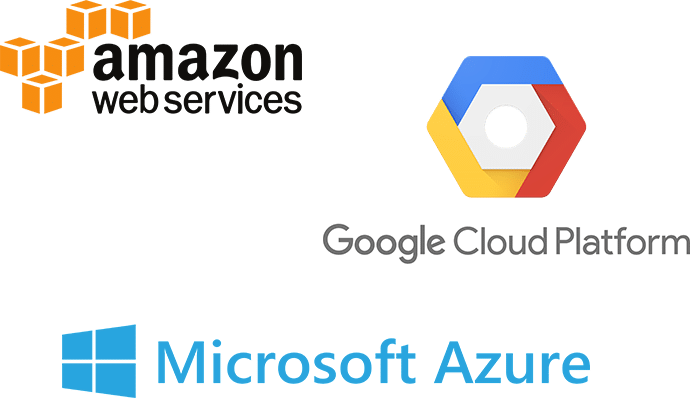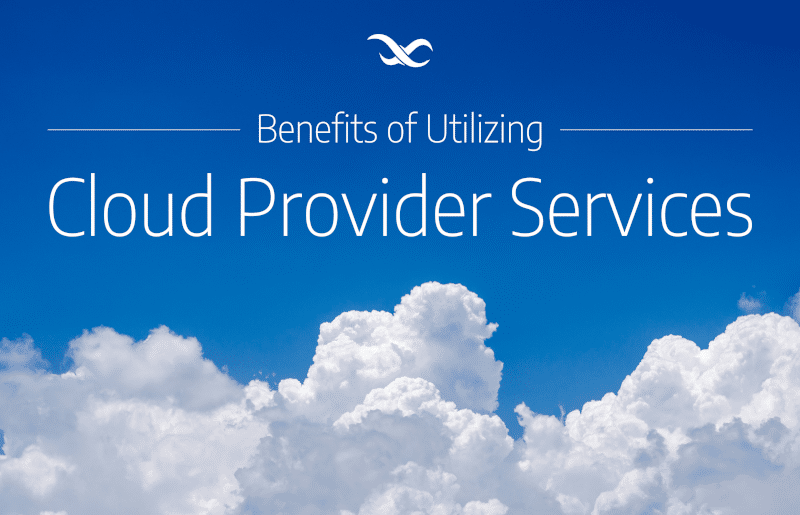
Cloud Provider Benefits
There are many advantages of using a cloud service provider:
1. Recurring, Predictable Monthly Costs
When selecting a provider, you can decide how much you’re willing to pay for your computational needs and have a consistent monthly bill.
A fixed monthly service plan can be customized to fit your budget and needs, helping you with optimizing the amount you pay for IT support.
2. Cost Savings
Outsourcing cloud computing controls and reduces costly network maintenance costs. Due to the economics of cloud providers, outsourcing to a cloud provider can save you thousands annually on the cost of having your own in-house IT department.
Rather than managing your own servers, your team will simply be managing cloud use to ensure you do not exceed your budget. Managing cloud deployments is much easier than maintaining your own local or remote server infrastructure.
3. Integrated and Custom Service
Managed cloud service providers offer flexible options that can be customized to suit your needs. Some cloud companies offer pre-paid or pay-per-service plans, enabling you to focus more funds on growth.
Other cloud service providers offer converged solutions, which results in even more cost savings. Converged infrastructure is an IT solution enabling you to combine multiple services into a single package with one provider.
These converged solutions may include servers, data services, network monitoring, or security protection, among other services.
4. Future-Proofing Your Business
Using cloud computing is the first step in future-proofing your business.
When using in-house IT personnel and your own data centers, your IT staff will have to spend company time training when a required upgrade or a new technology gets released.
By using public clouds, you are outsourcing this skill and technology development to the technicians employed by the service provider. In turn, you get access to the latest technology without the expenses.
5. Centralized Applications and Network Services
A cloud service provider will manage all the cloud computing requirements, including servers and applications, in a centralized data center. This simplifies network management, but does have limitations, such as providing a potential single point of failure. That is, if the centralized network goes down, all network services will go down as well.
Most providers have numerous failsafes in place to protect against such an occurrence.
6. Robust Infrastructure
Cloud service providers offer robust network infrastructures with 24/7 management. A managed service provider can monitor and scan the network for patch requirements security, and more.
Thus, using a cloud service provider offers additional layers of around-the-clock protection that may be lacking (or much more costly) with an internal infrastructure management team.
Managed service providers can also provide full application development platforms, integrate existing business policies and practices to manage your network, as well as cloud migration support.
7. Disaster Recovery
Any cloud managed service provider relies on the services it provides. To maintain business continuity, cloud computing platforms are designed with redundant and resilient networks and data centers.
Using a managed service will ensure your data is secured and safe across all applications and services. When disaster strikes, your operations and business will be able to continue with minimal downtime.
8. Full Service-Level Coverage
Cloud service providers offer superior control over maintenance, performance, and service levels. Comprehensive service-level agreements will allow your company to gain service continuity. The longer you work with any managed cloud services provider, the more familiar they will become with your infrastructure, resulting in faster response times.
9. Vendor Interfacing
When service issues specific to vendors arise, a managed service provider will take care of working with third-party vendors to resolve these as soon as possible.
10. Fast Response Times
Your company can rely on fast response times through enterprise-level remote cloud services and monitoring. Providers can often repair, monitor and access virtually any network issue remotely. If an issue needs to be resolved locally, a technician is normally dispatched within the same business day.
The Top Cloud Service Providers
With cloud computing, there are so many components of cloud, and a company’s requirements are so unique and different, it becomes tricky to select which one is best for you.
We have provided a list of the three top cloud service providers below to help you get started with making an informed decision. This list can serve as a starting point for your research to find the provider best suited for you.
All of these providers can be used to host Backendless Pro, our limitless app development platform. Thus, if you are looking to host your Backendless app on your own cloud servers, these are some of the top options available.
These providers are not listed in any particular order. They are the most well-known service providers, but they may not be the best fit for your project or organization.

1. Microsoft Azure
Microsoft Azure is used to deploy, design, and manage applications through a worldwide network. Azure supports various databases, operating systems, programming languages, frameworks, and tools.
Azure supports private clouds as well as public cloud services. A private cloud is a cloud that is only available to internal users, such as a single organization. With Azure, you can use a hybrid of public and private clouds as well as on-premise servers.
Azure is a global solution, with data centers in more regions than any other provider. Since Microsoft is the primary corporate developer of Windows Server and SQL Server, Azure offers unique savings programs making it less expensive to host these services on Azure than on other providers.
A free 30 day trial version is available.
2. Google Cloud Platform
Google Cloud Platform utilizes resources like virtual machines, hard disks, computers, etc. located at Google data centers. The platform includes access to Google’s popular collaboration services via Google Workspace featuring Gmail, Drive, Docs, Sheets, and Meet.
Google Cloud Platform offers integrated storage most often used by enterprises and developers for live data. The platform also offers the ability to garner unique business insights through machine learning and advanced analytics capabilities.
Google Cloud enables users to modernize their infrastructure while supporting VMware, Oracle, SAP, and Windows natively. You can also modernize your applications through the use of containers, Kubernetes, and other modern cloud-native capabilities.
Apart from a free trial, the service is available at several flexible payment plans based on Pay-As-You-Go.
3. Amazon Web Service (AWS)
AWS is the most protected and safest cloud service platform which offers a wide range of infrastructure services such as networking, computing power, and database storage.
AWS can be used to host static websites. Users using the AWS services can easily build complicated applications that are flexible, scalable, and trustworthy.
AWS Managed Services (AMS) are a managed solution that further reduces the time, effort, and expertise needed to utilize the Amazon cloud. AMS helps businesses augment and optimize their operational capabilities by leveraging Amazon’s new and existing AWS services.
Conclusion
Your business relies on its information. Without comprehensive managed cloud services, your company runs the risk of costly downtime, data loss, and security threats.
Whether you have a hybrid or multi-tenant cloud environment, managed cloud service providers have extensive cloud knowledge to provide cloud compliance services, fill in management gaps, and support your environment.



